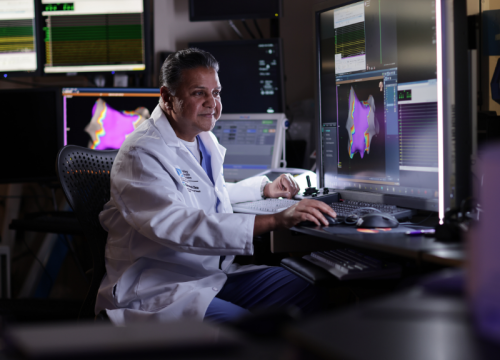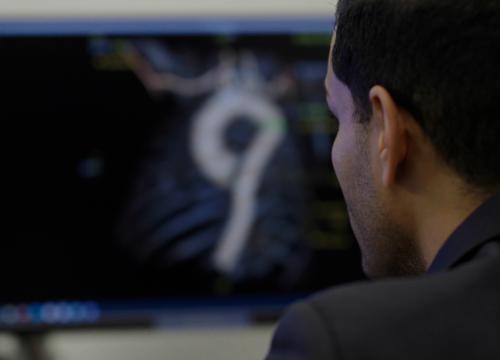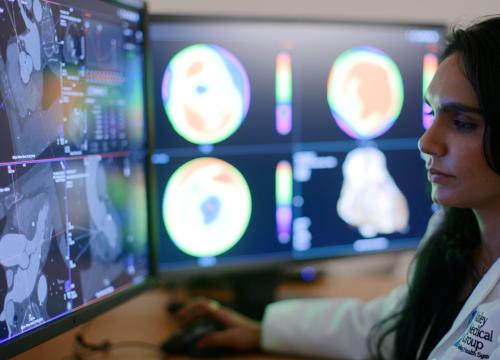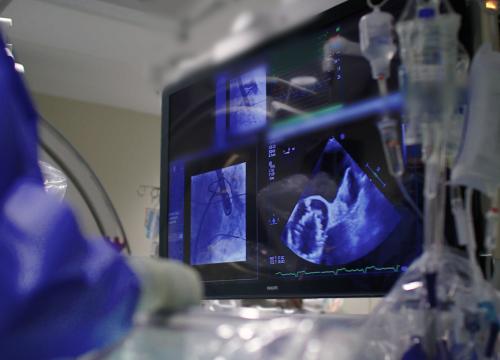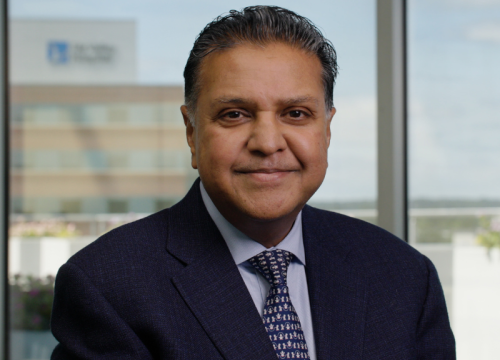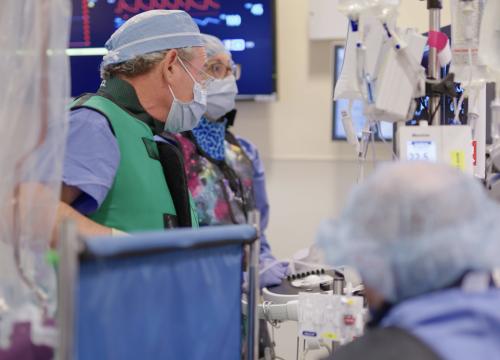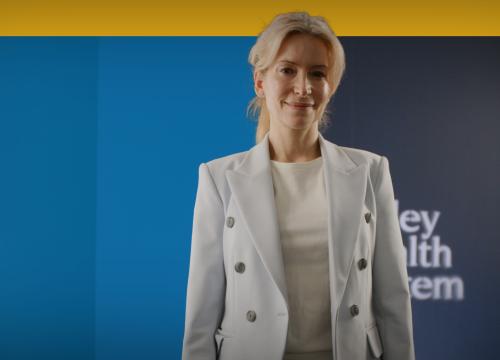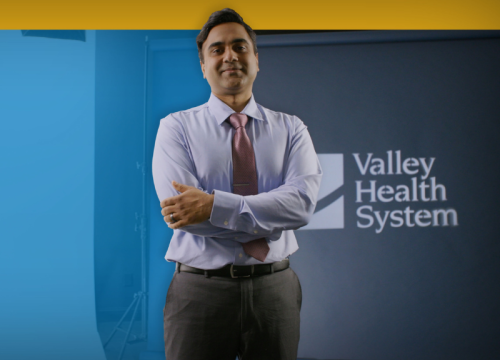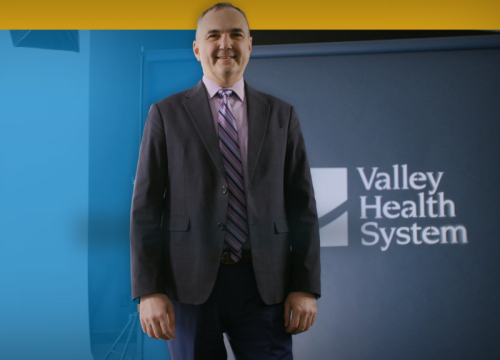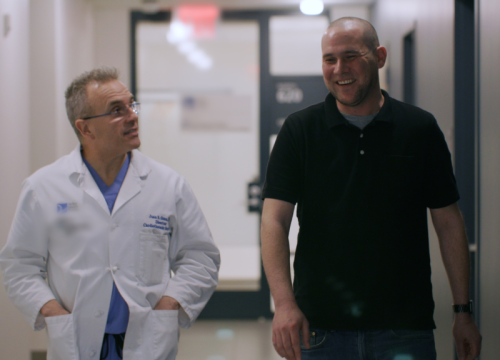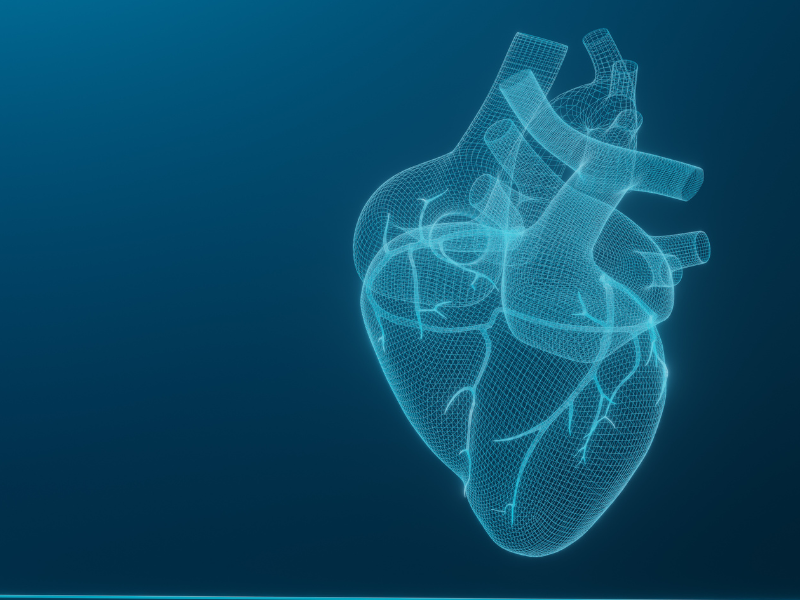
Artificial intelligence is the ability to make computers learn to solve problems that would otherwise require human effort. AI can analyze large amounts of data quickly with consistency and accuracy using algorithms and mathematical models to achieve desired results.
Many industries are utilizing AI, including health care, which merges data analysis with direct patient care. AI enables research scientists and clinicians to apply AI to more accurately diagnosis and treat illnesses, to improve decision-making, and even to predict and enhance the prevention of chronic diseases. At Valley Health System, we are implementing this technology robustly so we can determine the best course of action for patients.
Valley has made an investment in sophisticated AI technologies and has brought national and international recognition to cardiac imaging specialists here, who are pioneers and innovators in the use of AI in cardiology. Along with our entire multidisciplinary cardiology team, we use these advances to provide precision medicine to our patients because no two patients’ hearts are alike.
Using AI in Cardiology
At Valley, we are using AI in cardiac imaging and heart care in several ways:
• Cardiac CT calcium scoring to measure the amount of calcium build-up in a patient’s coronary arteries to determine the risk of future cardiac events.
• CT coronary angiogram to quantify atherosclerotic plaque build-up using Cleerly AI technology. Cleerly and HeartFlow Analysis, which incorporate AI algorithms, are used to diagnose and stage coronary artery disease and to determine each person’s specific need for a coronary stent and intensive medical therapy to improve clinical outcomes.
• Cardiac MR to evaluate the structure and function of a patient’s heart muscle and to calculate the amount of blood that is pumped with every heartbeat.
• Echocardiogram to accurately quantify heart function.
The results obtained by these tests assist cardiologists in determining whether a patient needs further testing and procedures or if they can forgo invasive tests and procedures such as cardiac catheterization, angioplasty, or heart surgery. The comprehensive results provided help clinicians decide and plan, with every patient’s input, what course of treatment needs to be taken.
New Frontiers in Heart Care
One of the most exciting promises of AI is its ability to enhance patient-physician decision-making in the risk prevention of future cardiac disease. It is estimated by the World Heart Federation that 80 to 90 percent of all cardiovascular disease worldwide – heart disorders and strokes – can be prevented by making lifestyle changes that include exercising regularly, stopping smoking, eating a healthy diet, and ‘knowing your numbers’ of blood pressure, cholesterol, and glucose A1C. Integrating multiple imaging parameters using emerging AI technologies will help in ‘precision’ care to prevent disease and promote health and wellness.
Cardiologists are confident that this paradigm shift in heart care – from disease management to prevention and wellness – will occur. AI will be the game-changer in assisting patients and their cardiologists in making this happen.
For more information, please visit ValleyHealth.com/Cardiology.


